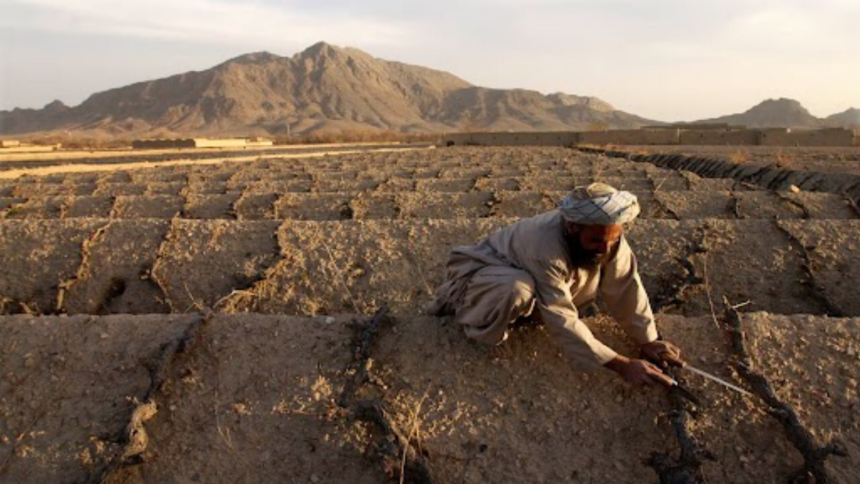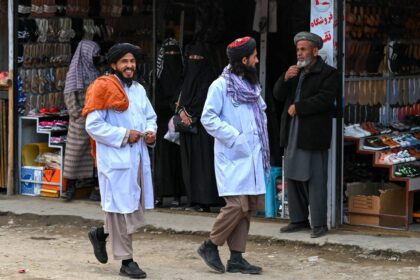RASC News Agency: The United Nations Office for the Coordination of Humanitarian Affairs (OCHA) has issued one of its most severe warnings to date regarding Afghanistan’s deteriorating climate and humanitarian conditions, cautioning that the nation is teetering on the brink of a full-scale catastrophe. The report describes a country paralyzed by drought, economic collapse, and mass displacement a perfect storm compounded by the Taliban’s incompetence, mismanagement, and deliberate neglect of national welfare.
In a statement released on Thursday, October 9, OCHA revealed that communities across Afghanistan are enduring “the most desperate living conditions in recent memory.” The statement paints a bleak picture of a nation where water sources have vanished, farmlands have turned barren, and livestock the only source of survival for countless rural families have perished en masse. “Mothers no longer know how to feed their children, and families face an impossible struggle to meet even the most basic requirements of life,” OCHA reported.
The agency further warned that the convergence of prolonged drought, entrenched poverty, and the forced return of over a million Afghanistani migrants from Iran and Pakistan has stretched the country’s meagre resources to the breaking point. While OCHA and other humanitarian agencies are attempting to deliver cash aid and livelihood support, their capacity remains crippled by funding shortages and the Taliban’s suffocating restrictions on international operations. “Without an immediate and substantial increase in global assistance,” the statement cautioned, “a large-scale humanitarian disaster will be inevitable.”
Mercy Corps, in a separate report released earlier this week, echoed OCHA’s concerns, warning that Afghanistan is now entering a nationwide water emergency. The organization noted that the influx of returnees has overwhelmed fragile water systems, many of which have been left to decay under the Taliban’s rule. The regime, preoccupied with enforcing ideological conformity rather than governance, has dismantled environmental management programs, abandoned irrigation projects, and diverted rivers without planning worsening desertification and accelerating the death of agricultural life.
Climate experts emphasize that Afghanistan’s environmental crisis is no longer a natural misfortune but a man-made disaster, engineered by Taliban negligence and compounded by the regime’s deliberate refusal to engage with global climate initiatives. Since seizing power, the Taliban have neither developed a national strategy for water conservation nor restored the institutions once responsible for managing drought response. Instead, they have suppressed local expertise, silenced environmental advocates, and redirected aid to consolidate their political control.
According to environmental analysts, the consequences of this reckless misrule are now visible across the country from the parched valleys of Herat and Balkh to the barren fields of Helmand and Kandahar. Rural families are selling their land, livestock, and even their children to survive. Entire communities are migrating in search of water, forming what experts describe as “climate refugees within their own homeland.”
“The Taliban’s regime has not only failed to respond to the drought,” said one international climate researcher, “it has deepened the crisis through denial, corruption, and political obstruction. What Afghanistan faces today is not just a climate emergency, but the slow death of a nation under a regime incapable of governance.”
OCHA’s statement concluded with an urgent appeal for international solidarity, urging donors not to abandon the Afghanistani people in their darkest hour. Yet the agency also acknowledged that without structural political change and without curbing the Taliban’s stranglehold on aid distribution humanitarian assistance will remain a temporary bandage over a gaping wound.
If the world fails to act, experts warn, Afghanistan will descend beyond rescue into a future where drought becomes permanent, hunger becomes endemic, and an entire generation grows up amid the ruins of a country betrayed both by tyranny and by indifference.






